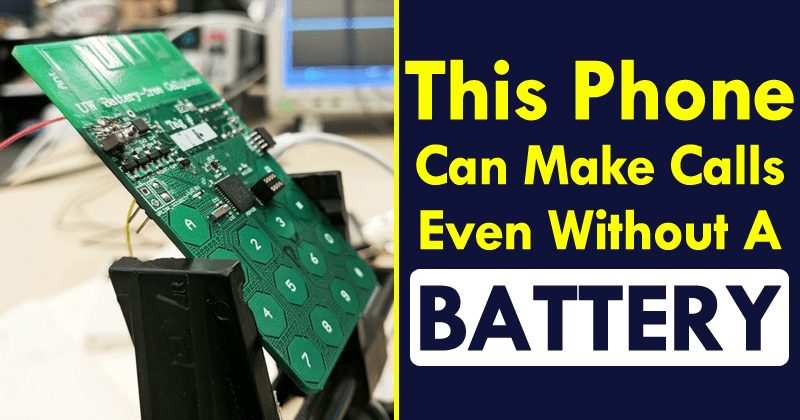The new prototype is the result of a year of work by this team. Its objective was to get a mobile to be able to call without a battery, an end for which they had to face two major challenges: to obtain the necessary energy from the environment and reduce the electrical consumption of a call, which usually is of about 800 milliwatts. First, the researchers focused on resolving the issue of communication. For this, the prototype is based on a technique known as backscatter, a physical phenomenon that consists of the reflection of waves, particles or signals in the direction to where they come from. Joshua Smith, a member of the group of researchers from the University of Washington in Seattle (United States), comes from working on a startup that markets a system they call “passive WiFi,” which is a digital backscatter technology for ultra low power WiFi devices. However, this system proved to require too much energy for the project. To solve the problem, secondly, they looked for a method to reduce the electrical consumption of a phone call. “The conversion of the analog human voice into digital signals consumes a lot of energy,” explains Vamsi Talla, the director of this research. “Communicating using analog technology is more efficient.” Thus, although the prototype uses digital signals to dial the numbers, the backscatter process for voice calls is analog. The mobile without battery uses certain remote components to save energy. For example, there is a base station with circuits for conversion and connection to the digital mobile network, which is currently Skype. The prototype only activates with determined frequencies and can not be separated from the base more than 15 meters. For the commercial development of the calling phone without a battery, it would be necessary to enable the domestic WiFi routers or the traditional telephony towers. However, there is still a long way to go. The first steps will be to improve the quality of the call and create a new prototype with an efficient electronic ink screen for text messages as well. So, what do you think about this amazing project? Simply share your views and thoughts in the comment section below.
Δ


